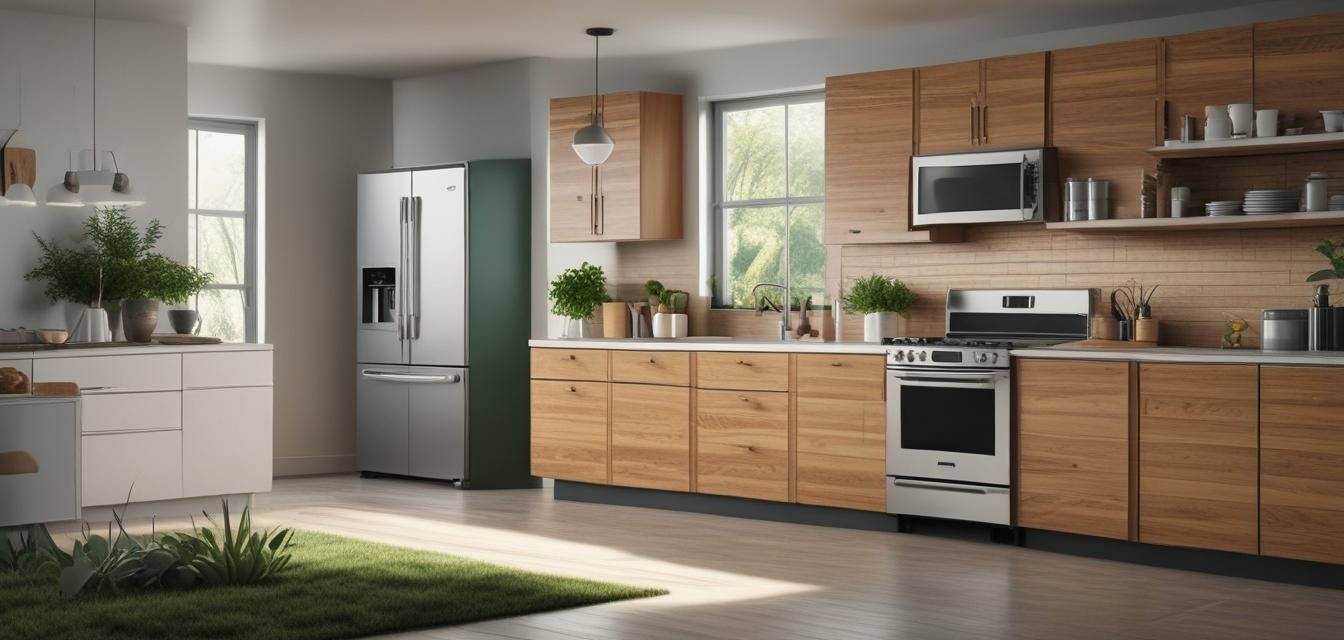
Energy Efficient Maintenance for Home Appliances
- Regular maintenance enhances the lifespan of appliances and saves energy.
- Simple cleaning tasks can prevent costly repairs.
- Understanding energy-efficient practices reduces electricity consumption.
- Utilizing proper installation ensures optimal appliance function.
Welcome to our guide on energy efficient maintenance for home appliances. In this article, we will explore essential maintenance practices that not only extend the lifespan of your appliances but also improve their energy efficiency. By following these tips, you can ensure that your appliances run at peak performance all year round. Whether you're a new homeowner or looking to optimize your existing appliances, this guide will provide you with valuable insights.
Why is appliance maintenance important?
Appliance maintenance plays a crucial role in keeping your home running smoothly while saving on energy costs. Here are a few key reasons why regular maintenance is essential:
- Extended Lifespan: Regular upkeep helps appliances last longer, reducing the need for expensive replacements.
- Enhanced Efficiency: Well-maintained appliances operate more efficiently, helping you save on energy bills.
- Preventative Care: Routine checks can identify issues before they become significant problems, saving you time and money.
- Safety: Maintaining appliances ensures they function correctly and reduces the risk of accidents.
Routine maintenance practices for common appliances
Here’s a detailed breakdown of maintenance tasks for various types of appliances:
| Appliance Type | Maintenance Tips | Frequency |
|---|---|---|
| Refrigerators |
|
Every 6 months |
| Dishwashers |
|
Every month |
| Washing Machines |
|
Monthly |
| Microwave Ovens |
|
Weekly |
| Air Conditioners |
|
Seasonally |
| Heaters |
|
Seasonally |
Energy-efficient practices to adopt
In addition to maintenance, adopting energy-efficient practices can further reduce your energy consumption:
- Use appliances during off-peak hours: This can save you money on utility bills.
- Program your thermostat: Use a programmable thermostat to optimize heating and cooling schedules.
- Utilize energy-saving modes: Many appliances come with energy-saving settings that can be activated.
- Seal your home: Ensure windows and doors are properly sealed to minimize energy loss.
Understanding energy ratings
Energy ratings on appliances can guide your purchasing decisions. Here’s what to look for:
| Energy Rating | Description | Benefits |
|---|---|---|
| Energy Star | Meets strict energy efficiency guidelines set by the EPA. | Saves energy and money while reducing greenhouse gas emissions. |
| ENERGYGUIDE | A label that provides an estimated yearly energy cost. | Helps you compare energy usage between models. |
| CEC Regulations | Standards set by the California Energy Commission. | Assures compliance with energy-saving laws. |
Tips for cold weather appliance care
As the seasons change, so do the needs of your appliances. Here are some winter maintenance tips:
- Keep refrigerators away from heat: Ensure your refrigerator is not directly exposed to heating sources.
- Check insulation on water heaters: Insulating your water heater can reduce energy costs significantly.
- Drain outdoor hoses: Prevent freezing by removing and draining hoses.
- Regularly check furnace filters: Clean or replace filters monthly for optimal heating efficiency.
Conclusion
Effective maintenance combined with energy-efficient practices can significantly enhance your appliances’ performance while lowering your energy consumption. Make small adjustments to your cleaning routines and be proactive about maintenance, and you'll reap the benefits in the long run.
For more tips on optimizing your appliances, check out our other articles in the Tips and How-to Articles section!
Pros
- Increases appliance lifespan.
- Reduces energy costs over time.
- Enhances safety in your home.
Cons
- Time-consuming to manage multiple appliances.
- Requires some upfront knowledge of appliance maintenance.
